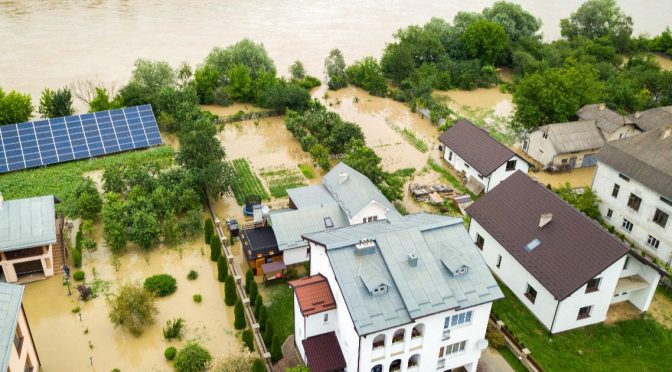How Climate Change is Reshaping Miami Home Inspections
Climate change is reshaping Miami home inspections in many ways. We now check homes for safety and value with more focus on rising sea levels, extreme heat, and frequent flooding. Inspectors in Miami are paying close attention to foundations, roofs, waterproofing, HVAC systems, and plumbing, since all of these areas are at higher risk from climate-related damage.
I will explain why these factors matter and what homeowners should know before buying, selling, or maintaining a property in Miami.
Why Climate Change Impacts Miami Homes
With its coastal location and flat land, Miami is vulnerable to both rising seas and powerful storms. Climate change makes these risks worse by:
- Rising Sea Levels: Saltwater intrusion damages foundations, pipes, and underground systems.
- Frequent Flooding: Heavy rain and storm surge push water into homes and weaken building structures.
- Extreme Heat: Roofs, air conditioning systems, and insulation break down faster in hotter weather.
Because of these challenges, home inspections in Miami now require a closer look at how well a house can handle these pressures.
Foundation Inspections and Flood Risks
The foundation is one of the first areas that inspectors check. Flooding and high groundwater levels can weaken or shift foundations. Saltwater makes the problem worse by corroding steel reinforcements inside concrete.
Key Foundation Concerns in Miami
- Cracks in Concrete: Can signal water intrusion or shifting soil.
- Settlement Issues: Rising water tables soften the ground and cause sinking.
- Salt Damage: Saltwater eats away at reinforced concrete, reducing strength.
We often recommend additional checks for flood zones. If the home sits in a high-risk area, elevation certificates and floodproofing measures may be needed.
Roof Inspections Under Extreme Heat
Roofs take the full impact of higher temperatures, heavier rains, and hurricane winds.
Common Roof Problems Linked to Climate Change
- Warped Shingles or Tiles: Caused by prolonged exposure to extreme heat.
- Leaks: Heavy rain finds small openings and worsens water damage.
- Mold Growth: Hot and humid weather creates the perfect environment for mold in attics and underlayment.
Our inspectors look at both the roof covering and the roof deck. In homes near the coast, corrosion of metal fasteners is also a common issue.
Waterproofing: A Critical Step for Miami Homes
With sea level rise and frequent storms, waterproofing is no longer optional; it’s essential. Water can seep through walls, windows, and underground spaces. Once inside, it damages insulation, drywall, and electrical systems.
Areas That Need Strong Waterproofing
- Basements and Crawl Spaces: Often exposed to groundwater intrusion.
- Exterior Walls: Cracks and weak seals allow water to enter.
- Windows and Doors: Poor seals increase flood risk.
Our team now inspects the type and condition of waterproofing materials. They also check drainage systems, sump pumps, and grading around the home to see how well these move water away from the structure.
HVAC Systems in a Hotter Climate
An HVAC system that works poorly in extreme weather not only raises utility bills but also puts health at risk.
What Inspectors Look For in HVAC Systems
- Unit Size: Systems that are too small cannot keep up with hotter temperatures.
- Ductwork Condition: Leaks waste cool air and energy.
- Salt and Humidity Damage: Corrosion and rust shorten system lifespan.
- Air Quality: High humidity increases mold growth in ducts and filters.
I recommend regular maintenance and upgrades to energy-efficient models. Some homeowners are also adding backup systems, such as portable generators, to prepare for outages during hurricanes.
Plumbing and Saltwater Intrusion
Saltwater corrodes metal pipes and damages underground plumbing. In some areas, even sewer systems back up during flooding.
Plumbing Issues Tied to Climate Change
- Corroded Pipes: Salt weakens copper and galvanized steel pipes.
- Backflow Risks: Floodwater can push sewage into homes without proper valves.
- Low Water Pressure: Damaged underground pipes leak or clog from corrosion.
Florida Inspections Unlimited checks for pipe materials, water pressure, and backflow prevention devices. In flood-prone zones, they also look at whether plumbing systems are raised or protected.
Insurance and Real Estate Impacts
Insurers in Florida are raising rates or dropping coverage for homes without flood protection. Buyers want to know if a home can withstand rising risks.
Why This Matters for Homeowners
- Homes with poor inspections may lose value.
- Buyers are more cautious in flood-prone neighborhoods.
- Insurance companies demand proof of strong structures.
A detailed home inspection can give homeowners documentation to support insurance discounts and reassure buyers about safety.
Preparing for Climate-Ready Homes
Home inspections are no longer just about spotting minor issues. They serve as a roadmap for building resilience against climate change.
Steps Miami Homeowners Can Take
- Get regular inspections focused on flood and heat risks.
- Upgrade roofs, HVAC systems, and plumbing with durable materials.
- Invest in waterproofing and drainage improvements.
- Keep detailed inspection reports for insurance purposes and to maintain resale value.
By planning ahead, homeowners reduce damage costs and make their properties more attractive in a competitive market.
Climate Change and Miami Home Inspections
Climate change is reshaping Miami home inspections in every way. Rising seas, hotter weather, and stronger floods are forcing inspectors to look deeper at foundations, roofs, waterproofing, HVAC systems, and plumbing. These changes are not just about keeping homes safe today; they are about protecting value and preparing for the future.
Inspections are more than a routine check. They are a defense against the growing impacts of climate change, helping families stay safe and secure in one of the country’s most vulnerable cities.






